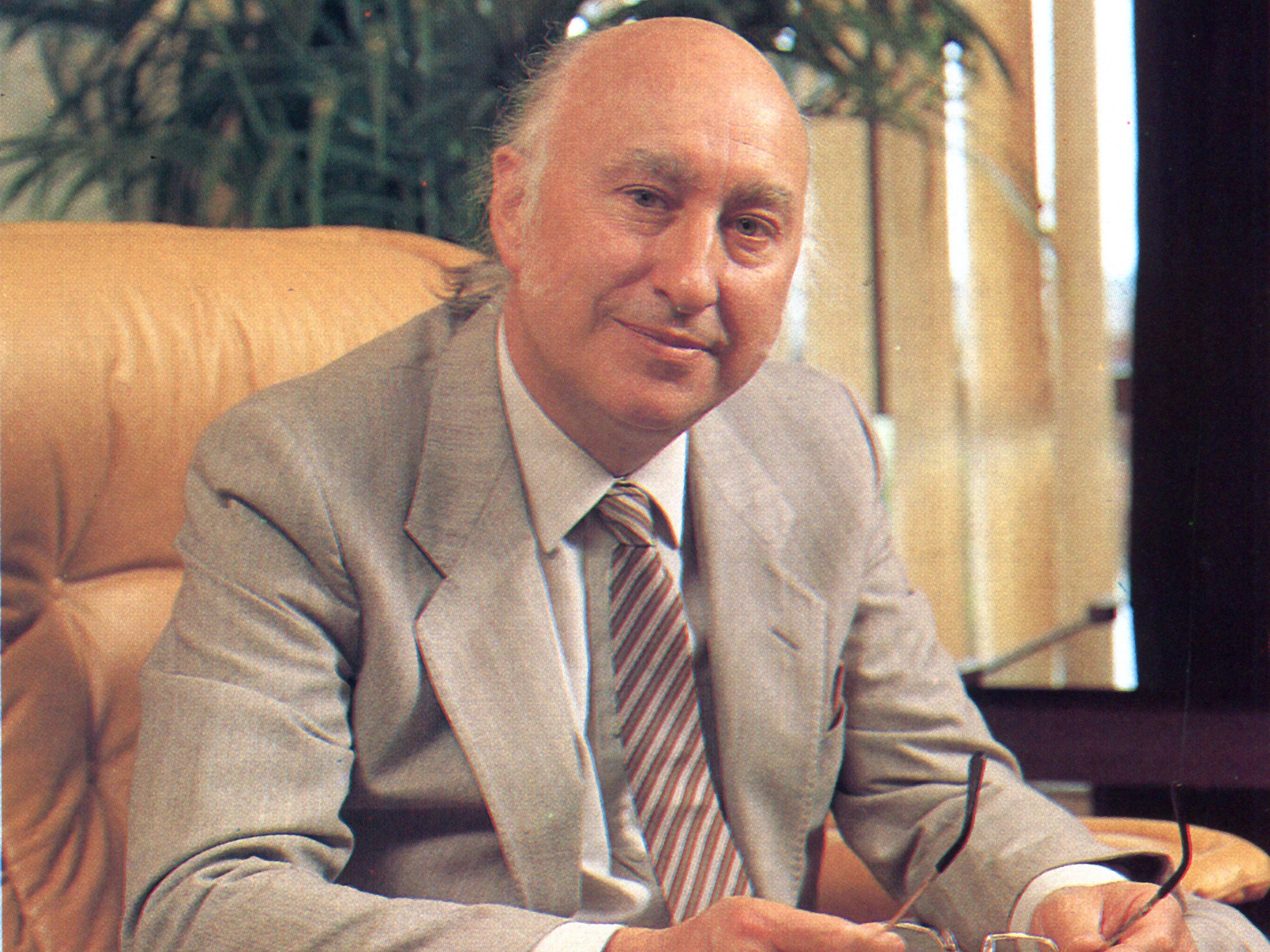Brian Couzens: Businessman who founded the Chandos record label and led the way for independents in the classical music market
Couzen: the speedy public take-up of CDs boosted the fortunes of Chandos

As the pioneering founder and owner of Chandos, the independent classical record label, Brian Couzens played a key role in the development of the record industry, starting in 1979, a few years before the launch of CDs. The appearance of such independent labels was a notable development; they explored unrecorded repertoire, which the major companies had always rejected, and championed significant artists who needed a recording contract. Chandos prospered when the majors’ domination began to wane.
Couzens, assisted by his son Ralph, who is now managing director, achieved an international reputation. Inevitably, much of Couzens’ life story is the chronology of Chandos.
Couzens learned his trade as an arranger and music publisher (the first use of the name Chandos), interested in light music and brass bands, and as a freelance in the film industry. He assisted the composer Ron Goodwin, orchestrating such films as 633 Squadron, meeting impossibly short deadlines. The story is told of an all-night studio-session on a film score; both sketched out possible themes, only to be dismayed when they found they had inadvertently written “Three Blind Mice”!
As a freelance with a mobile recording unit, he made recordings for the majors, notably RCA. But in 1979 RCA closed their London Office and Couzens launched Chandos, operating from dingy rooms up Dickensian backstairs on Charing Cross Road, Couzens in one room, his designer and general factotum, Janet Osbourne, opposite. It was said that the strikingly creative appearance of Chandos LPs was Osbourne’s legacy. But they parted company when Chandos moved to Colchester.
Chandos’s first in-house recording was Bloch’s Sacred Service, conducted by Geoffrey Simon. With Simon, Brian went on to make an exploratory Tchaikovsky series, researched by Edward Johnson and notable for their spacious sound. Couzens was introduced to Simon’s then wife, the pianist Margaret Fingerhut, then in her mid-twenties. Her revelatory performances of Bax’s major works for piano and orchestra were a typical Chandos triumph.
The success of Chandos was a consequence of the speedy public take-up of compact discs after 1983, as well as Couzens’ insistence on the highest standards of presentation, recording and manufacture (promoted by their equipment built in-house, and the “Chandos sound”) and his vision in exploring new repertoire. A dedicated group of Chandos artists emerged, speedily producing a phenomenally varied repertoire.
Conductors included Bryden Thomson, Mariss Jansons, Neeme Jarvi, Gennady Rozhdestvensky, Richard Hickox and Vernon Handley. More recent signings have included Gianandrea Noseda, Edward Gardner and Sir Andrew Davis. Orchestras who approached Chandos and prospered included the Oslo Philharmonic, the BBC Philharmonic and the Royal Scottish National Orchestra.
An early specialism of Chandos was British music. Developing a personal enthusiasm for Bax, and seeking finance to record the Fourth Symphony, Couzens persuaded a brewery company to fund it; it went on to win a Gramophone award for technical excellence. This, again, was timely, for the Bax Trust was just established and was able to provided sufficiently large subventions to enable Chandos to record the complete Bax cycle, immediately changing Bax’s critical status in the musical world.
Series became a notable feature of the Chandos catalogue. Such collections included Alwyn, Arnold, Bax, Dyson, Parry, Rubbra, Stanford, Vaughan Williams and Britten and Walton’s complete output. It was not only British music; there was a comprehensive Prokofiev survey, complete Debussy piano music, Mahler, Shostakovich, a French series and currently the Italian composer Alfredo Casella.
Important, too, is the 90-title series of operas in English, recorded in partnership with the Peter Moores Foundation, and a very successful series of film music recordings, including such composers as Vaughan Williams, Alwyn and Shostakovich. With funding in place, Couzens, always willing to explore a one-off project, for example recording two volumes of music by the Australian-born composer Hubert Clifford.
Chandos was unrivalled in embracing a big project, dazzling examples being Bantock’s Omar Khayyam conducted by Vernon Handley, Dyson’s Canterbury Pilgrims and Quo Vadis; John Foulds’ A World Requiem, live at the Royal Albert Hall, and Vernon Handley’s memorable boxed set of Bax symphonies, when it was becoming obvious that Handley’s health was failing.
Couzens believed in personalising the company’s products, and initially he developed supporting services in-house, so that at its peak there were said to be some 50 staff in the extensive offices in Colchester. Eventually a financial crisis forced a move to smaller offices and the staff was reduced considerably. As the CD market changed and sales began to fall, Couzen’s pioneering early interest in high-quality classical downloads paid off: “We were saved by the downloads,” he remarked to me.
Chandos recordings have featured as Gramophone’s Record of the Year, notably with the original version of Vaughan Williams’ A London Symphony (Richard Hickox and the LSO), Britten’s War Requiem (also Hickox) and a Choral Recording of the Year award for Hummel Masses. There have been Grammy Awards for Britten’s Peter Grimes (more Hickox) and, in 2008, for Humperdinck’s Hansel and Gretel conducted by Sir Charles Mackerras.
Brian Couzens’ achievements were recognised when he was awarded an honorary doctorate by the University of East Anglia in 2007 and a Gramophone special achievement award in 2010. His legacy is indeed a remarkable one.
Brian William Couzens, businessman: born Southend-on-Sea 17 January 1933; married 1956 Isle Hauguth (died 2005; one daughter, three sons), 2006 Debbie Frogel; died Colchester 17 April 2005.
Join our commenting forum
Join thought-provoking conversations, follow other Independent readers and see their replies
Comments